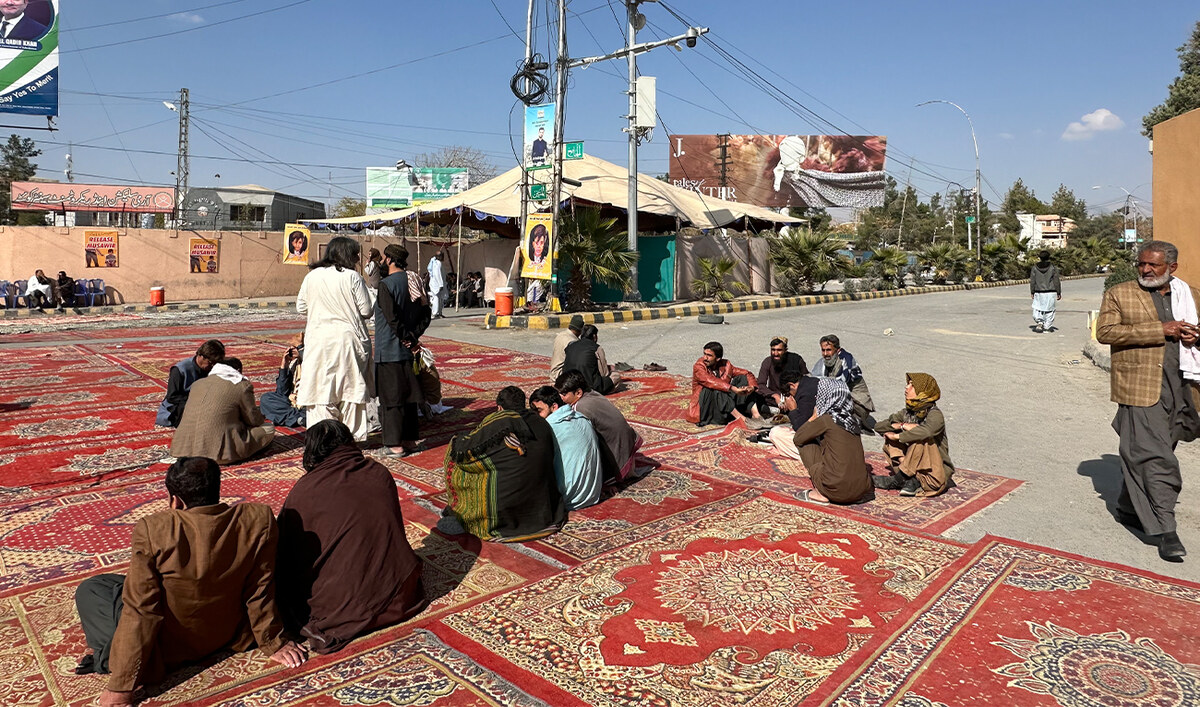KARACHI: With an emphasis on improving the security of Chinese workers in Pakistan, officials in Beijing and Islamabad held the 13th Joint Cooperation Committee (JCC) meeting online on Friday, agreeing to proceed with the ML-1 railway project estimated to cost over $6 billion.
The JCC meeting, which focused on joint energy and infrastructure development initiatives under the multibillion-dollar China-Pakistan Economic Corridor (CPEC), was convened after the March 26 suicide attack that killed five Chinese engineers and their local driver en route to the under-construction Dasu dam.
Briefing the media about the decisions made during the meeting, Pakistan’s planning minister Ahsan Iqbal said Chinese security concerns were discussed during the talks.
“Security issues were discussed in the meeting and China was briefed on improving security,” he said, adding that Pakistani authorities had raised a special force to ensure the safety of CPEC projects.
The Chinese nationals in Pakistan have been targeted by various militant factions, with a significant number of attacks coming from Baloch nationalists who aim to push Beijing out of the mineral-rich Balochistan province.
Pakistan’s top economic body on Thursday approved $2.5 million in compensation for the families of the Chinese workers killed in the March 26 Dasu attack.
Iqbal mentioned that both sides decided to initiate more projects apart from those carried out under the CPEC umbrella, adding: “We will jointly improve the security for these projects.”
He also informed the two countries agreed to start the mega ML-1 railway project focusing on the dualization of the existing railway network, built in the late 19th century, and the overall upgrading of tracks connecting the port city of Karachi to Peshawar.
“I am pleased to inform you that Pakistan has made significant progress on the Pakistan Railways Mainline-1 project,” the planning minister said. “The re-modified PC-1 [project feasibility] has been approved with a cost of $6.76 billion in two phases.”
“The project is now ready for the bidding process among eligible Chinese companies,” he added. “We request that the bidding process should start immediately in view of the poor deterioration of the railway track.”
Iqbal also provided details of the CPEC projects that have been completed so far.
“It is heartening to note the steady progress CPEC has made since its inception in 2013,” he said. “In the energy sector, we have successfully completed 16 projects, with a generation capacity of 8,020 MW [megawatts], along with two coal mines and a +660 kV HVDC [Kilovolt High Voltage Direct Current] transmission line.”
He added that the 884 MV Suki Kinari hydropower project worth $1.707 billion was still under construction and expected to be commissioned by November 2024.
“Three power projects, including two hydel (Azad Pattan 700 MW and Kohala 1124 MW) and one coal-based (Gwadar) with a generation capacity of 2124.7 MW worth $4.157 billion, are at an advanced stage,” he continued.
The minister maintained concrete progress on the next CPEC phase would emerge after Prime Minister Shahbaz Sharif’s visit to China, expected in the first week of June.
The two countries have closely collaborated since the launch of the joint corridor project. Sharif met representatives of several Chinese companies on Friday, noting that bilateral relations between the two states were further strengthening.
He urged Chinese companies to establish their industries in the special economic zones under CPEC by developing business-to-business relations, particularly inviting Chinese entrepreneurs in the textile sector to benefit from the opportunities in Pakistan.
Speaking to Arab News, Ammar Habib Khan, a senior research economist, acknowledged China’s financial assistance to Pakistan while suggesting that Islamabad wanted Beijing to soften its stance on restructuring about $15 billion in loans, mainly extended for power and other infrastructure projects.
“The debt restructuring of about $15 billion, including those of the power sector, will provide Pakistan a breathing space and could lead to a reduction in electricity prices,” he said.
Pakistan and China move forward on $6.76 billion railway line project amid increased security measures
https://arab.news/m4qb6
Pakistan and China move forward on $6.76 billion railway line project amid increased security measures

- Minister Ahsan Iqbal says ML-1 project is now ready for the bidding process among eligible Chinese companies
- PM Sharif also meets Chinese businessmen, asks them to set up industries in special economic zones under CPEC

















